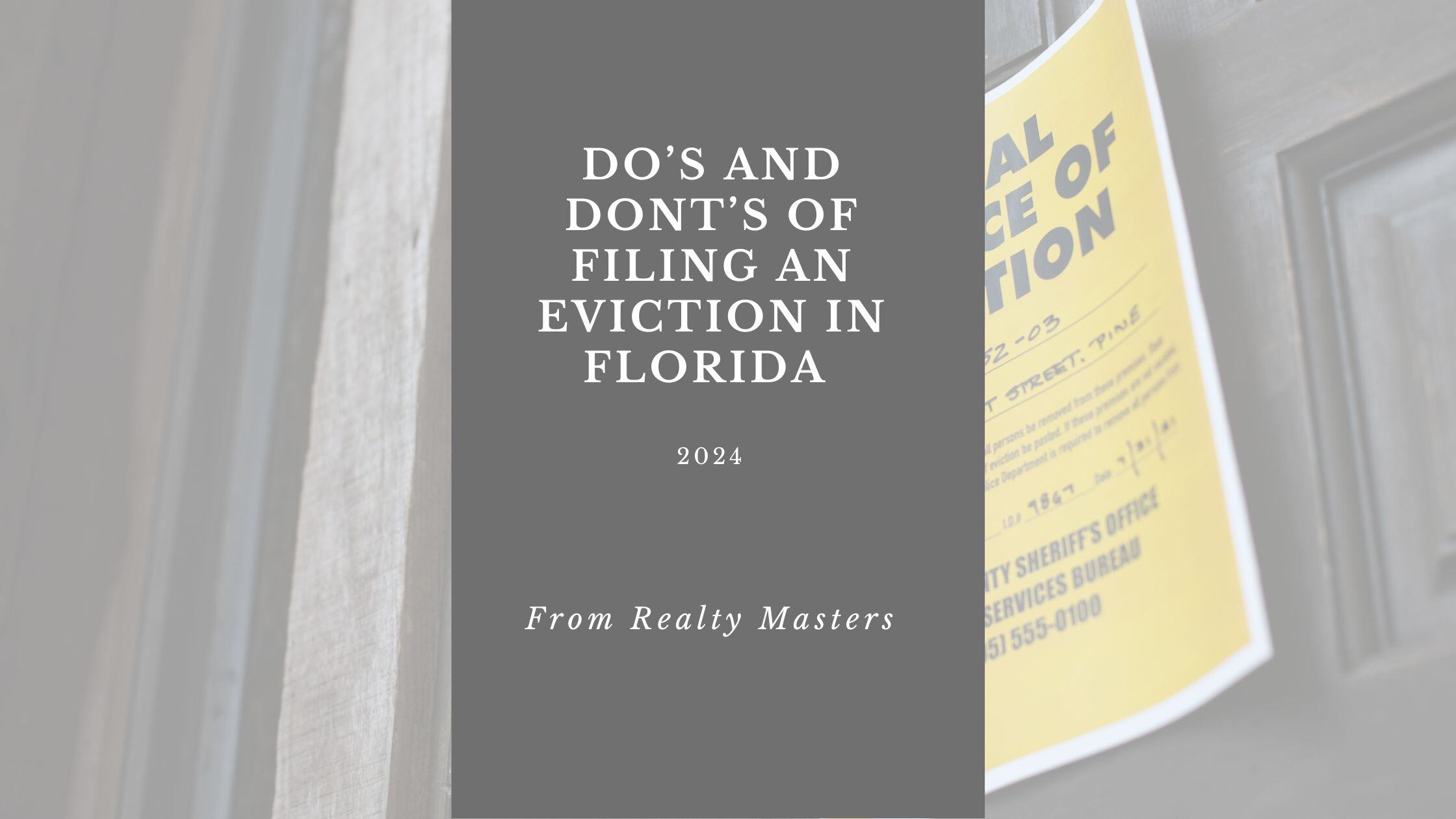The most common eviction type in Florida is for non-payment of rent. While other types exist, such as violations of lease rules or no-cause evictions (where allowed), each requires specific steps. The non-payment of rent eviction is the simplest and fastest eviction in the state of the Florida! An eviction for non-payment typically takes 3-5 weeks and involves a notice period, filing an eviction complaint, a potential court hearing, and the writ of possession.
Here’s a rundown of the steps for filing an eviction in Escambia and Santa Rosa Counties:
Steps to File an Eviction
- Serve a 3-Day Notice- Notify the tenant in writing about overdue rent, allowing three business days to pay or vacate. Make sure you put the proper amounts owed, calculate the right dates and consider any weekends or holidays, and hand serve the notice to the tenant or post on the door in their absence. If you are mailing a notice, you need to add additional time under Florida Landlord Tenant law.
- File an Eviction Complaint- If unpaid, file an eviction complaint with the county clerk or through an attorney. You will need to follow the court’s instructions to attach the required copies of leases, any notices, the eviction complaint and any other required documents, self-addressed stamps, and fees due.
- Summons Issued- The court issues a summons, giving the tenant five business days to respond.
- Proceed Based on the Tenant’s Response
- If they respond, a court hearing is scheduled. The court may or may not require the tenant to deposit rent to the clerk to receive a hearing.
- If not, request a default judgment and file for a Writ of Possession.
- Enforce the Writ of Possession- The Sheriff delivers a 24-hour notice to vacate. If the tenant doesn’t leave, the Sheriff will remove them.
We see the average cost for an eviction in Escambia and Santa Rosa County ranging between $350 and $1,500 depending on which county, how many tenants, and if an attorney is needed to file the eviction. Reach out to the clerk of court’s office to find documents and more detailed information on filing the eviction and the complete eviction process. For ease, here’s a link to eviction information in both Escambia County and Santa Rosa County but please be sure the documents are the most up-to-date before completing them or relying on them.
Important Do’s and Don’ts of Evictions
Do for Eviction:
- Follow Timelines: Adhere to the legal notice and waiting periods.
- Keep Records: Maintain copies of leases, notices, and communications.
- Attend Hearings: Be prepared with evidence and documentation.
Don’t for Eviction:
- Attempt Self-Eviction: Changing locks, turning off utilities, or removing tenant belongings without a court order is illegal.
- Skip Notices: Proper notice is mandatory to validate your case.
- Delay Filing: Delays increase financial losses.
- Follow Guidance: Be sure to listen to the Sheriff or consult an attorney on how to handle certain matters in an eviction, including how to properly dispose of any items left inside the property after the eviction.
Additional Considerations for Evictions in Florida
If you offer rent-to-own or lease-purchase agreements, the process may differ significantly from standard evictions:
- You may need to file an ejectment in circuit court to regain possession.
- Filing in the wrong court could result in delays or dismissal of your case.
This is one of the reasons we do not commonly recommend a rent-to-own agreement versus a traditional lease arrangement.
If the property is owned under a business entity (e.g., LLC, corporation), Florida judges often require legal representation to proceed with an eviction. This is certainly true in Escambia County, especially if your tenant files a response with the court. Remember, we are not attorneys and cannot provide legal advice. As each eviction case is different, consult a qualified attorney to ensure compliance with Florida law.
Hiring a professional property manager can significantly reduce the risk of evictions by ensuring thorough tenant screening and adherence to leasing best practices. Property managers carefully vet applicants for creditworthiness, rental history, and background checks to select reliable tenants. We enforce lease terms, address maintenance issues promptly, and maintain clear communication to foster positive landlord-tenant relationships. By managing conflicts and compliance with local regulations, a property manager minimizes costly legal disputes and ensures your rental property operates smoothly.


